Member Directory,
1847 - 1922
John Hay
Diplomat/Public Servant
Centurion, 1871–1905
Augustus R. Macdonough, Samuel J. Tilden, and Charles A. Joy
Salem, Indiana
Newbury, New Hampshire
Age thirty-two
Cleveland, Ohio
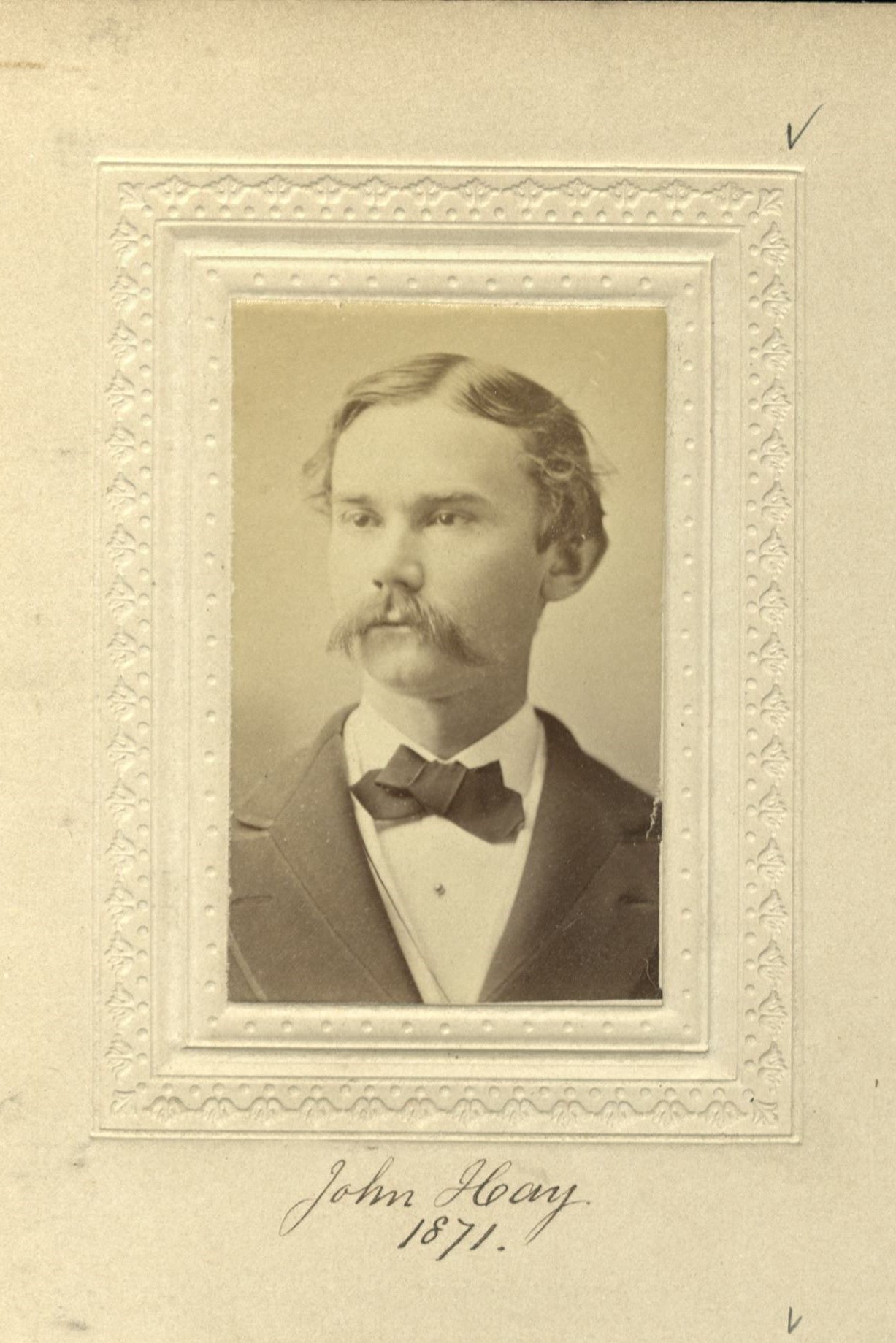
Archivist’s Notes
Father of Clarence L. Hay; cousin of Logan Hay; grandfather of John Hay Whitney; great-grandfather of John W. Payson
Century Memorial
When John Hay was elected to The Century in 1876, he was but thirty-three years of age [sic: he was elected in 1871 at age thirty-one]; but he had just retired from a dozen years of public service of singular value and unusual range. This he was to resume a quarter of a century later, winning a reputation in diplomacy surpassed by none in our time, and rivalled only by that of Cavour, Gladstone, Bismarck; and in the meantime in journalism and in literature he was to win much honor and affection. About no name in our rich list, about none in recent American history, are there gathered more brilliant associations, and none, it is permitted to believe, will be more intimately connected with the part the Republic is playing and is to play in the affairs of the world. It is not too much to say—those closely connected with the conduct of international affairs have very frankly said it—that to Mr. Hay is due the prevention of the disintegration of China. Thence followed the complete change in the destiny of the Far East, the entrance of Japan into the company of the great Powers, the British-Japanese alliance, the firm entente between the United States and Great Britain, and the weighty consequences already impending from these events. These are vast echoes to awaken in our peaceful halls, but they respond to the mention of the name of our lost comrade; we could not silence them if we would. Mr. Hay was born in Indiana, in 1838, of a Scotch-English family settled in Virginia for three generations, removing thence on account of their aversion from slavery. Graduated from Brown University at twenty, he entered the law office of a friend of Mr. Lincoln in Illinois, whence he passed to that of Mr. Lincoln himself, whose warm friendship he soon won, and who took him to Washington as Assistant Private Secretary. During the next five years, Mr. Hay was the trusted aide and confidential agent of the President in matters of the most delicate nature and greatest importance, so that when the relation was severed by Mr. Lincoln’s tragic death he had acquired remarkable familiarity with the events and the characters of the most momentous period of American history. During the next five years he served as Secretary of Legation under our honored Vice-President, Mr. Bigelow, at Paris, as Chargé d’Affaires at Vienna, and as Secretary of Legation at Madrid. Then he came to New York on the staff of the Tribune, where he quickly established his position as a sound, thoroughly informed, and effective editorial writer. After a couple of years as Assistant Secretary of State under President Hayes, he took up his residence in Washington in 1881, and devoted himself, in association with Mr. [John G.] Nicolay, to the preparation of the Life of Lincoln and the editing of Lincoln’s works. This task, which lasted fifteen years, involved not merely a biography of Mr. Lincoln—though as a biography it had extraordinary value—but a history of the United States during the middle third of the nineteenth century. It attained and deserved great success, but it concerns us chiefly as the final stage in that education in and for American statesmanship which was to make possible the really wonderful career of Mr. Hay in the last seven years of his life. In 1897 he was appointed American Ambassador at the Court of St. James’s, where he served the fateful period of the war with Spain, watching patiently and keenly the tangled currents of sentiment and interest set in motion by that surprising contest, and taking a potent part in the welding of the ties between the two English-speaking nations which may be rated among the most important and lasting of its results. Before the close of the war he was called to the Department of State. The features of his brilliant and all-too-brief service in that high office are in all our minds, and admiration and much gratitude for its net results are in our hearts. He guided the peace with Spain; he removed the Clayton-Bulwer treaty from the path of the Isthmus Canal project; he introduced the influence of the United States in the settlement of the problem of the Far East by the establishment of the principles of the “open door” and the integrity of China, principles our Government could sustain without risk because with perfect respect for the rights of all; he settled the Alaskan controversy; he negotiated reciprocity with Cuba and the West Indies; he took an active, if not a controlling, part in the proceedings for the final connecting of the oceans across the Isthmus of Panama; he gave solid and indispensable support to the Hague Tribunal by referring to it the Pious Fund dispute with Mexico and the claims on Venezuela; and, though touched by the hand of death, he labored to the last moment in the seemingly desperate endeavor to bring about the negotiations that led to the peace of Portsmouth. Through it all he gained the respect and confidence of the guiding minds in the affairs of the world to a degree unequalled by any predecessor in the long and honorable list of American Secretaries of State. Foresight, penetration, infinite patience coupled with untiring energy, rare knowledge of men, and tact in dealing with them—these are the qualities the rulers and statesmen of the time cordially recognized. To his fellow-countrymen there was apparent also a touch of Jim Bludso in the refined and highly trained diplomatist. To “treat his engine well” and “never be passed on the river,” this ideal also underlay the splendid spirit that
“Seen his duty—a dead sure thing—
And went for it thar and then.”
We may think of him whom Lincoln’s large, kind hand led in boyhood, who stood by Lincoln’s side through all the days and nights of the dread conflict for nationality and freedom, as of close spiritual kin on the ruder as on the loftier side of his great character, living in new conditions the American life, guarding, transmitting, evolving the American type.
Edward Cary
1906 Century Association Yearbook
Related Members
Member Directory Home-
 Henry AdamsAuthorCenturion, 1892–1918
Henry AdamsAuthorCenturion, 1892–1918 -
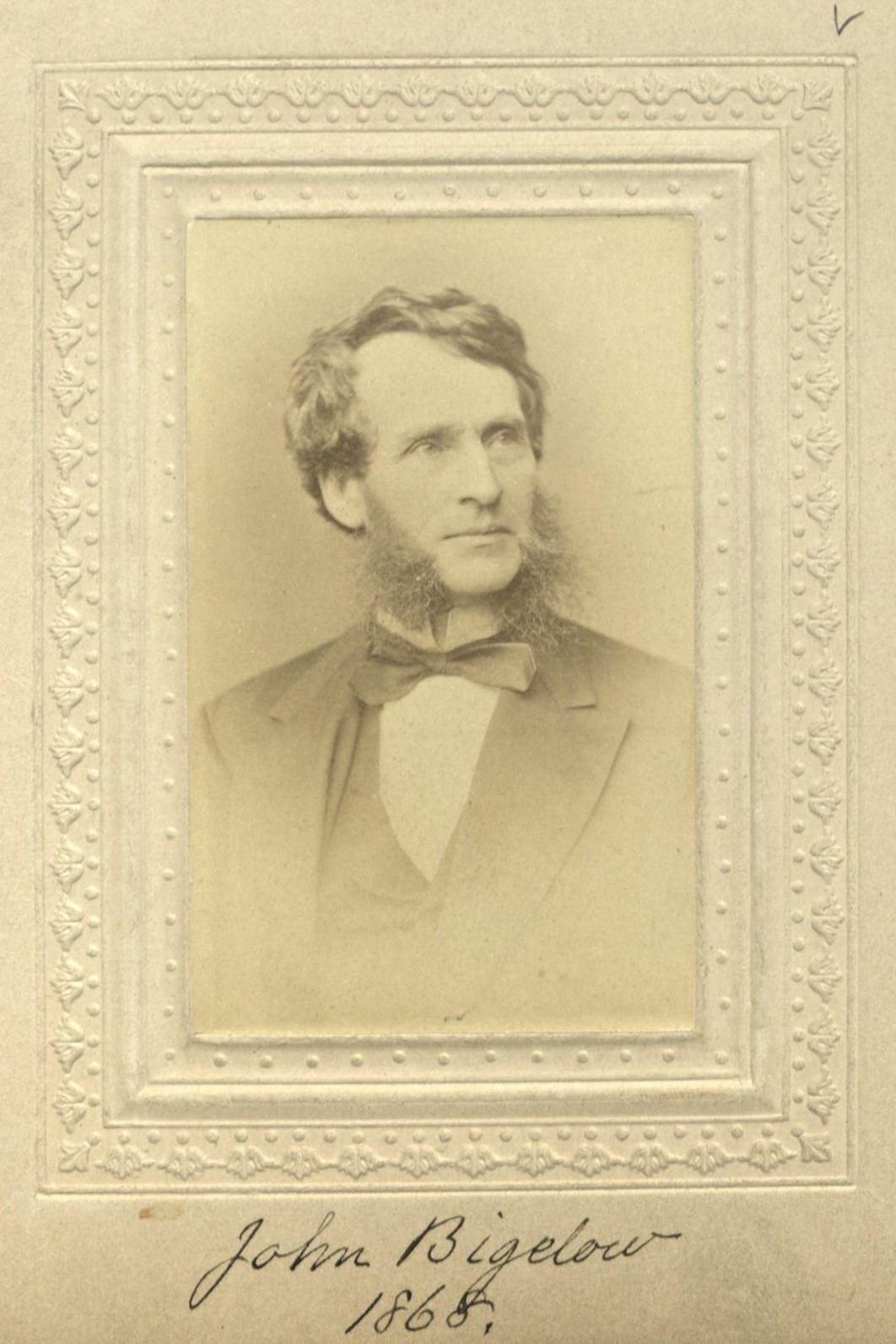 John BigelowLawyer/StatesmanCenturion, 1868–1911
John BigelowLawyer/StatesmanCenturion, 1868–1911 -
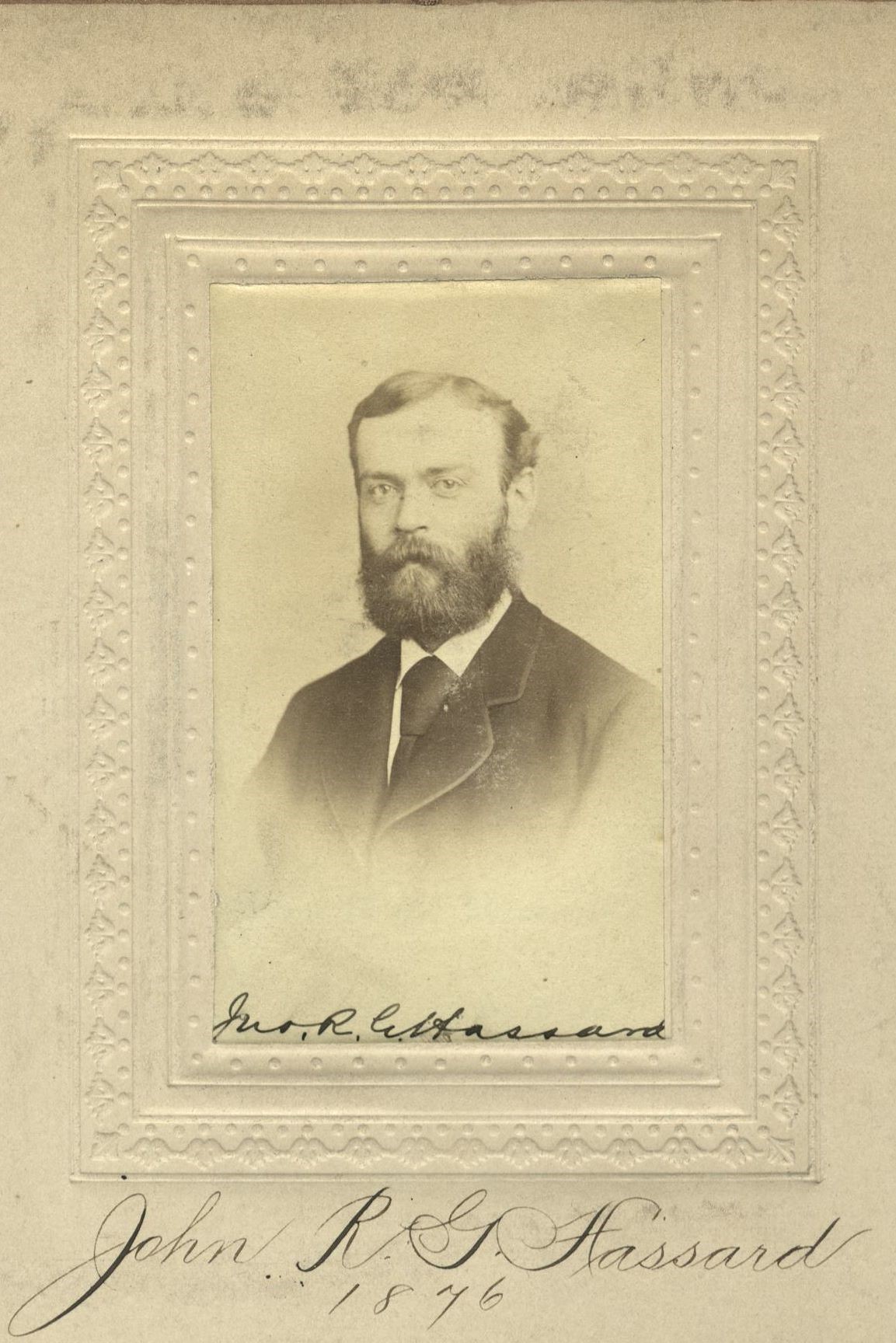 John R. G. HassardCritic/EditorCenturion, 1875–1888
John R. G. HassardCritic/EditorCenturion, 1875–1888 -
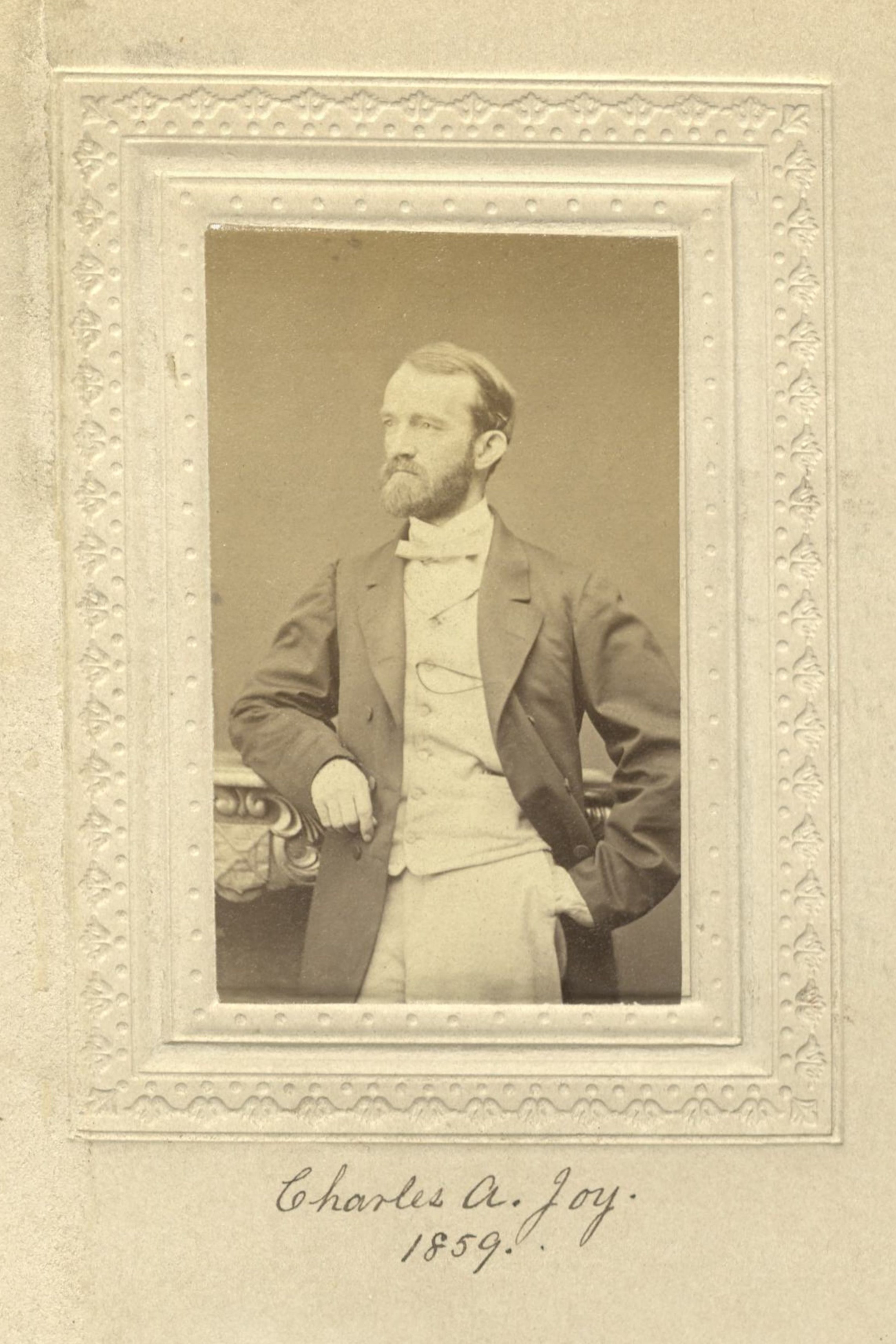 Charles A. JoyProfessor of ChemistryCenturion, 1859–1891
Charles A. JoyProfessor of ChemistryCenturion, 1859–1891 -
 Clarence KingGeologist/Surveyor/AuthorCenturion, 1874–1901
Clarence KingGeologist/Surveyor/AuthorCenturion, 1874–1901 -
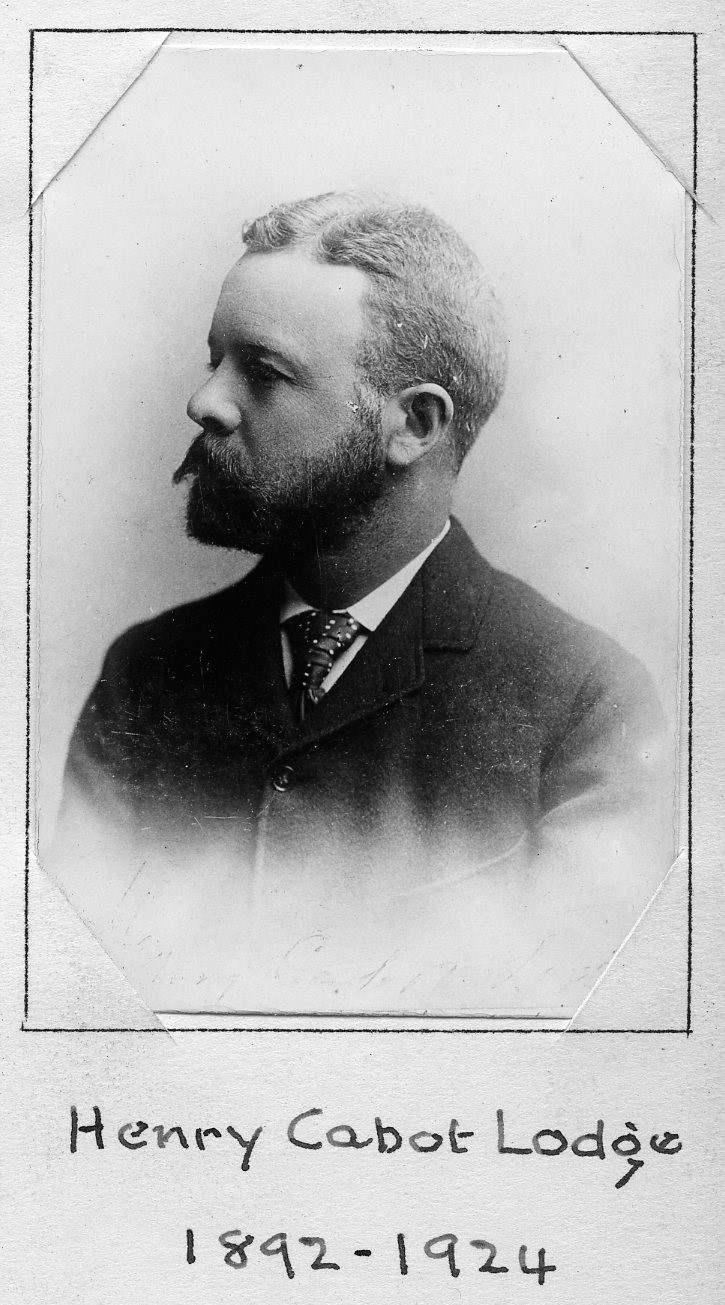 Henry Cabot LodgeAuthor/U.S. SenatorCenturion, 1892–1924
Henry Cabot LodgeAuthor/U.S. SenatorCenturion, 1892–1924 -
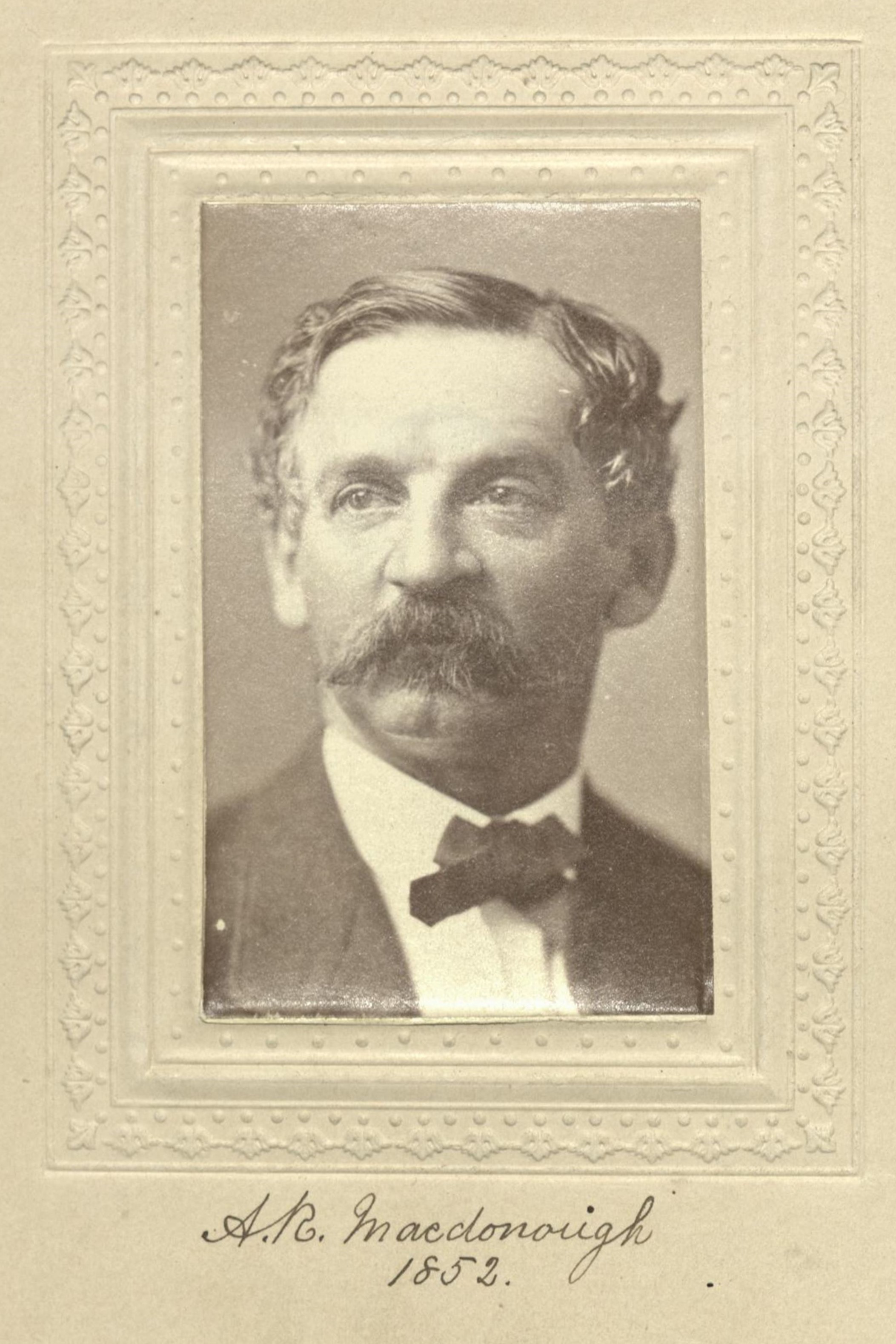 Augustus R. MacdonoughLawyer/RailroadCenturion, 1852–1907
Augustus R. MacdonoughLawyer/RailroadCenturion, 1852–1907 -
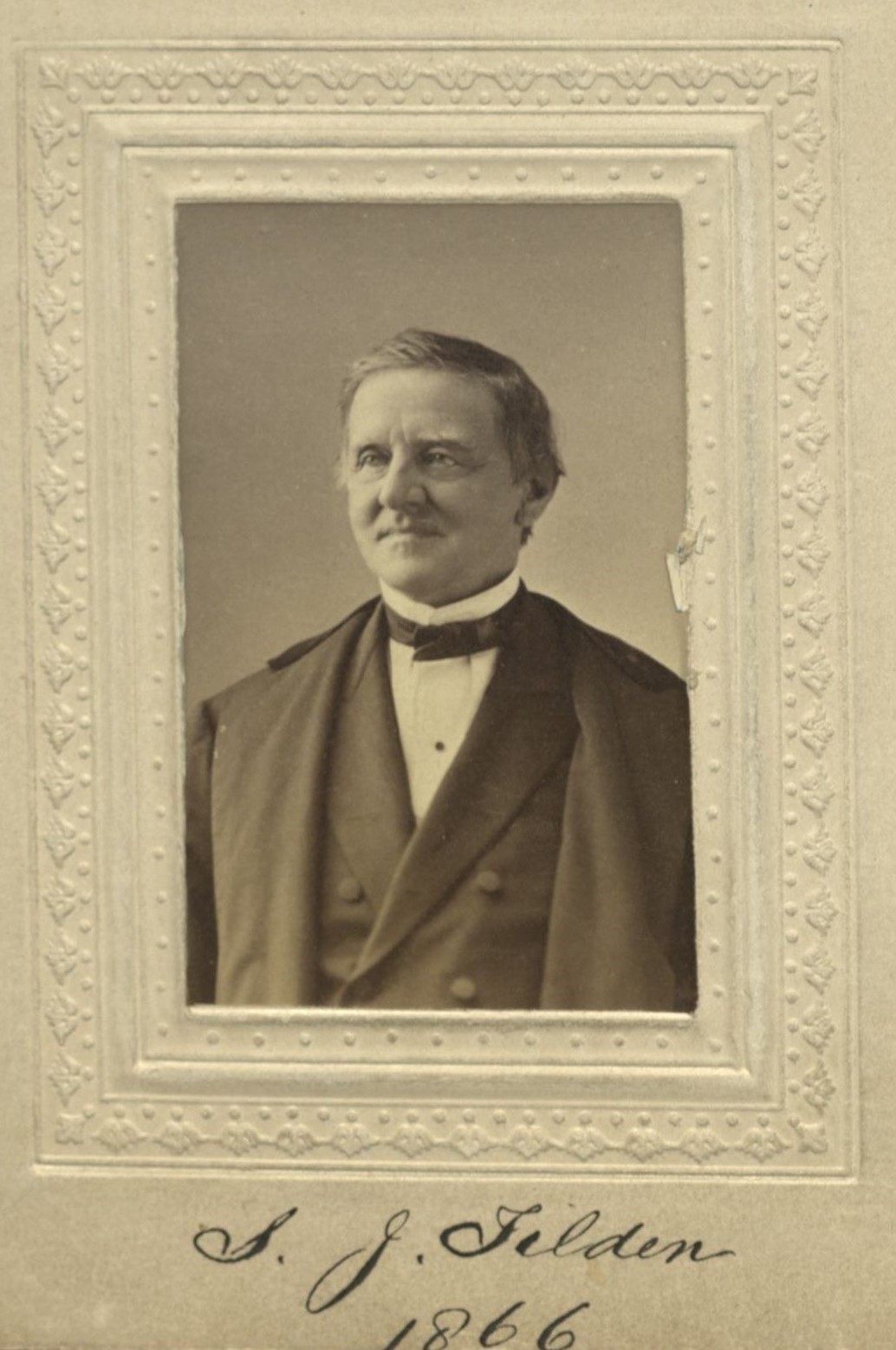 Samuel J. TildenLawyer/Governor of New YorkCenturion, 1866–1886
Samuel J. TildenLawyer/Governor of New YorkCenturion, 1866–1886






